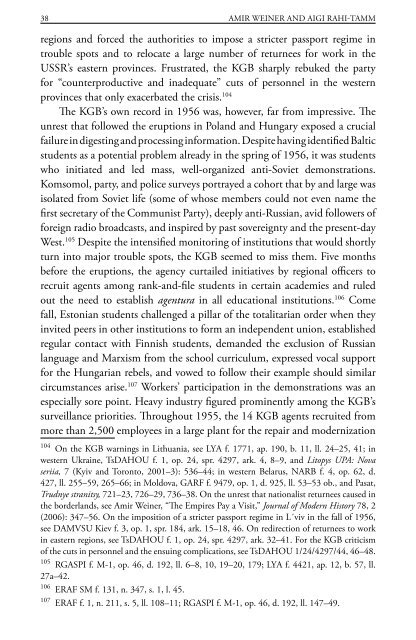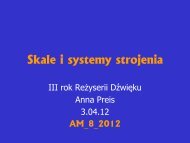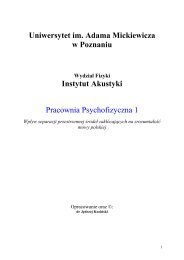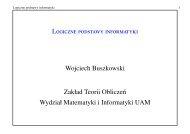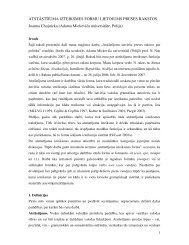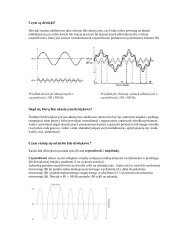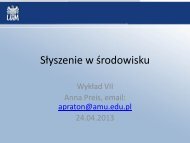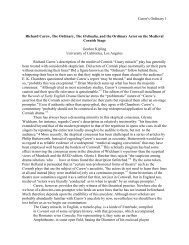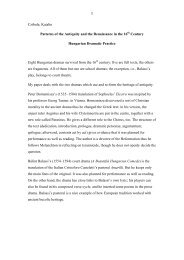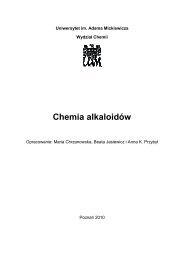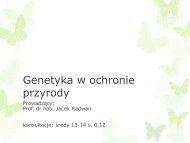Amir Weiner Getting to Know You
Amir Weiner Getting to Know You
Amir Weiner Getting to Know You
You also want an ePaper? Increase the reach of your titles
YUMPU automatically turns print PDFs into web optimized ePapers that Google loves.
38 AMIR WEINER AND AIGI RAHI-TAMM<br />
regions and forced the authorities <strong>to</strong> impose a stricter passport regime in<br />
trouble spots and <strong>to</strong> relocate a large number of returnees for work in the<br />
USSR’s eastern provinces. Frustrated, the KGB sharply rebuked the party<br />
for “counterproductive and inadequate” cuts of personnel in the western<br />
provinces that only exacerbated the crisis. 104<br />
The KGB’s own record in 1956 was, however, far from impressive. The<br />
unrest that followed the eruptions in Poland and Hungary exposed a crucial<br />
failure in digesting and processing information. Despite having identified Baltic<br />
students as a potential problem already in the spring of 1956, it was students<br />
who initiated and led mass, well-organized anti-Soviet demonstrations.<br />
Komsomol, party, and police surveys portrayed a cohort that by and large was<br />
isolated from Soviet life (some of whose members could not even name the<br />
first secretary of the Communist Party), deeply anti-Russian, avid followers of<br />
foreign radio broadcasts, and inspired by past sovereignty and the present-day<br />
West. 105 Despite the intensified moni<strong>to</strong>ring of institutions that would shortly<br />
turn in<strong>to</strong> major trouble spots, the KGB seemed <strong>to</strong> miss them. Five months<br />
before the eruptions, the agency curtailed initiatives by regional officers <strong>to</strong><br />
recruit agents among rank-and-file students in certain academies and ruled<br />
out the need <strong>to</strong> establish agentura in all educational institutions. 106 Come<br />
fall, Es<strong>to</strong>nian students challenged a pillar of the <strong>to</strong>talitarian order when they<br />
invited peers in other institutions <strong>to</strong> form an independent union, established<br />
regular contact with Finnish students, demanded the exclusion of Russian<br />
language and Marxism from the school curriculum, expressed vocal support<br />
for the Hungarian rebels, and vowed <strong>to</strong> follow their example should similar<br />
circumstances arise. 107 Workers’ participation in the demonstrations was an<br />
especially sore point. Heavy industry figured prominently among the KGB’s<br />
surveillance priorities. Throughout 1955, the 14 KGB agents recruited from<br />
more than 2,500 employees in a large plant for the repair and modernization<br />
104 On the KGB warnings in Lithuania, see LYA f. 1771, ap. 190, b. 11, ll. 24–25, 41; in<br />
western Ukraine, TsDAHOU f. 1, op. 24, spr. 4297, ark. 4, 8–9, and Li<strong>to</strong>pys UPA: Nova<br />
seriia, 7 (Kyiv and Toron<strong>to</strong>, 2001–3): 536–44; in western Belarus, NARB f. 4, op. 62, d.<br />
427, ll. 255–59, 265–66; in Moldova, GARF f. 9479, op. 1, d. 925, ll. 53–53 ob., and Pasat,<br />
Trudnye stranitsy, 721–23, 726–29, 736–38. On the unrest that nationalist returnees caused in<br />
the borderlands, see <strong>Amir</strong> <strong>Weiner</strong>, “The Empires Pay a Visit,” Journal of Modern His<strong>to</strong>ry 78, 2<br />
(2006): 347–56. On the imposition of a stricter passport regime in L´viv in the fall of 1956,<br />
see DAMVSU Kiev f. 3, op. 1, spr. 184, ark. 15–18, 46. On redirection of returnees <strong>to</strong> work<br />
in eastern regions, see TsDAHOU f. 1, op. 24, spr. 4297, ark. 32–41. For the KGB criticism<br />
of the cuts in personnel and the ensuing complications, see TsDAHOU 1/24/4297/44, 46–48.<br />
105 RGASPI f. M-1, op. 46, d. 192, ll. 6–8, 10, 19–20, 179; LYA f. 4421, ap. 12, b. 57, ll.<br />
27a–42.<br />
106 ERAF SM f. 131, n. 347, s. 1, l. 45.<br />
107 ERAF f. 1, n. 211, s. 5, ll. 108–11; RGASPI f. M-1, op. 46, d. 192, ll. 147–49.


